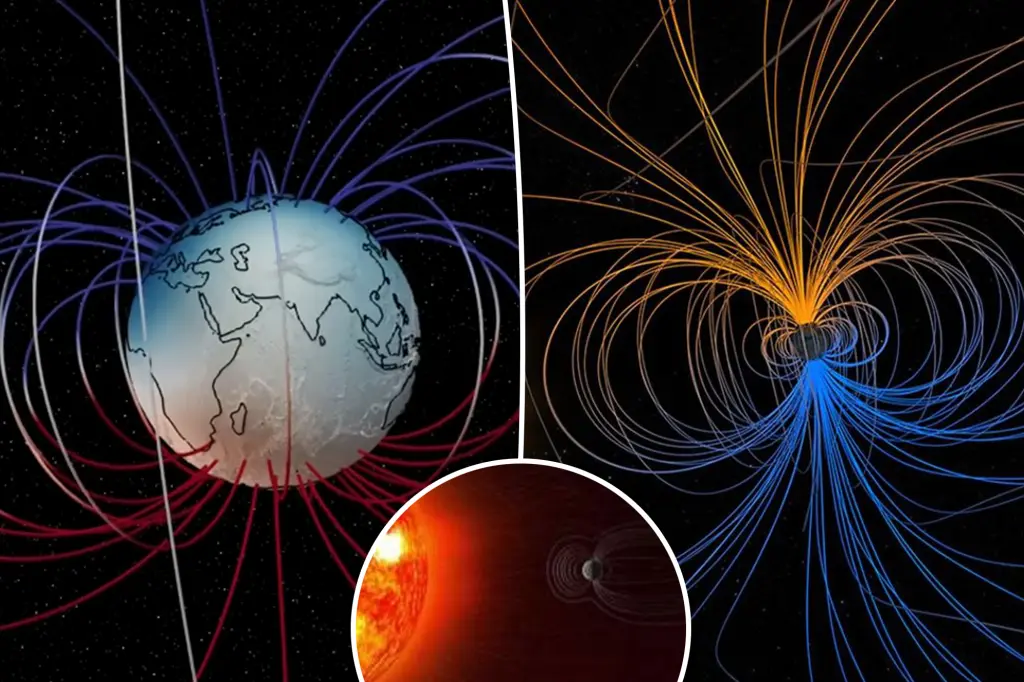
If our planet flips and no one’s around to hear it, does it still make a sound?
Scientists have managed to put a chilling soundtrack to the flipping of Earth’s magnetic field — and the result is absolutely bone-chilling.
This underground “rock music” was unveiled in 2024 by the Technical University of Denmark and the German Research Center for Geosciences, but the macabre music is going viral as listeners jump out of their skins, Science Alert reported.
Dubbed the Laschamps Event, the dramatic reversal occurred roughly 41,000 years ago when the magnetic field switched and North was South and vice versa, causing auroras to go streaking toward the Equator.
And while there was no score for this epic upheaval, now we can hear how it might’ve gone down, thanks to a musical interpretation of the phenomenon based on data collected by the European Space Agency’s Swarm satellite mission.
The geologist John Williams coupled satellite data with evidence of magnetic field line movements on Earth to recreate and then acoustically approximated it with sounds like creaking wood and crashing rocks.
As per the clip, the magnetic tune is otherworldly and creepy, like the title soundtrack to a deep space horror thriller or the geological equivalent of playing records backwards to hear the Devil.
This isn’t the first time there’s been a major disturbance in our magnetic field, which is created by swirling liquid metals in our planet’s core.
Extending deep into the space, this shield protects us from the atmosphere-stripping solar particles in deep space.
In fact, Earth’s magnetic sphere constantly shifts in tandem with the iron and nickel inside the core, so the poles are constantly in motion.
And while currently oriented North to South, every so often the magnetic field reverses its polarity, in which case our North-calibrated compasses would point South.
In the case of the Laschamps Event, it took 250 years for the polar switcheroo to transpire, and it remained in this topsy-turvy orientation for about 440 years, during which the magnetic field was at about 25% of its current power.
“Understanding these extreme events is important for their occurrence in the future, space climate predictions, and assessing the effects on the environment and on the Earth system,” German Research Center for Geosciences geophysics Sanja Panovska explained in 2024.
This isn’t the first time someone has scored the magnetic events of the Earth.
This summer, researchers at the Helmholtz Centre for Geosciences in Germany musically mapped the Matuyama-Brunhes reversal, a polar 180° that occurred 780,000 years ago, and lasted as long as 22,000 years.
Though the sound is almost pleasant at first, the reversal sees a whiplash-inducing tonal heel-turn, which the team dubbed a “disharmonic cacophony.”



